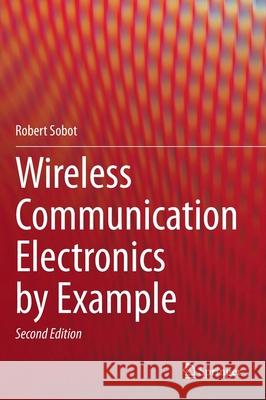Wireless Communication Electronics by Example » książka
topmenu
Wireless Communication Electronics by Example
ISBN-13: 9783030594978 / Angielski / Twarda / 2021 / 394 str.
Wireless Communication Electronics by Example
ISBN-13: 9783030594978 / Angielski / Twarda / 2021 / 394 str.
cena 362,27
(netto: 345,02 VAT: 5%)
Najniższa cena z 30 dni: 346,96
(netto: 345,02 VAT: 5%)
Najniższa cena z 30 dni: 346,96
Termin realizacji zamówienia:
ok. 22 dni roboczych.
ok. 22 dni roboczych.
Darmowa dostawa!
Kategorie:
Kategorie BISAC:
Wydawca:
Springer
Język:
Angielski
ISBN-13:
9783030594978
Rok wydania:
2021
Wydanie:
2021
Ilość stron:
394
Waga:
0.92 kg
Wymiary:
25.4 x 17.78 x 2.39
Oprawa:
Twarda
Wolumenów:
01
Dodatkowe informacje:
Wydanie ilustrowane











